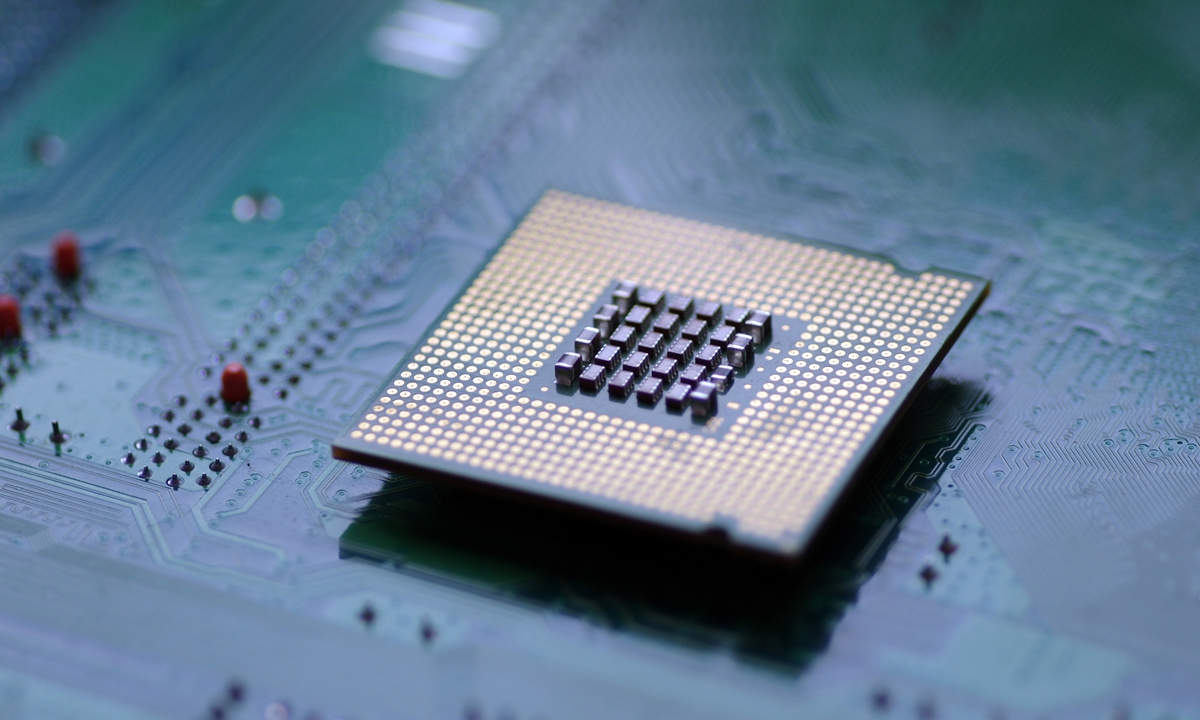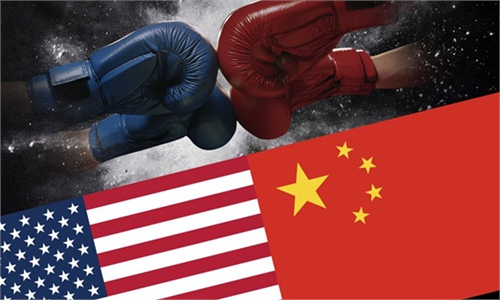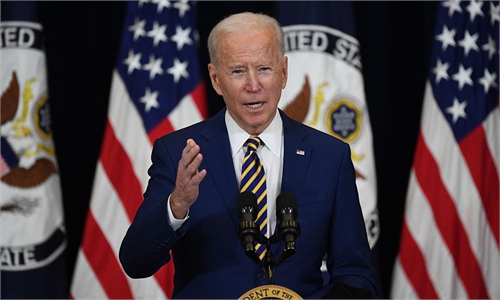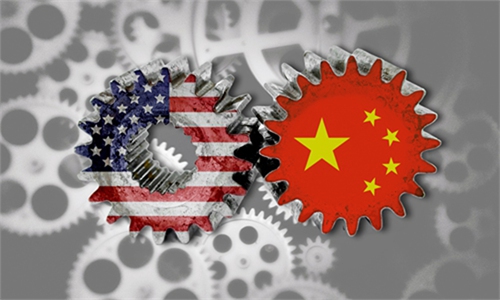Chinese tech firms ‘cautious’ over Biden’s 'extreme competition' remark
Companies should have ‘no illusions’ about cooling tensions: tech insider

Chip Photo:VCG
After US President Joe Biden warned of "extreme competition" with China, while also making clear that he would not pursue the same path his predecessor Donald Trump took, many in China's technological arena took that as a clear sign that the US government's crackdown on Chinese technology companies would continue, if not further escalate.
Chinese industry insiders and analysts have urged businesses to abandon any "illusions" that things would improve meaningfully under Biden, particularly with regard to what could be an escalating rivalry in the technological realm that would decide the two countries' global standing in the coming years and decades. However, some still suggested that Biden might avoid certain "irrational behavior" undertaken by Trump.
In an interview with CBS News aired on Sunday (US time), Biden offered more clues as to how he would approach relations with China, suggesting that he might try to avoid a conflict and follow international rules.
However, in keeping with his repeated theme of getting tough on China, Biden said that "we need not have a conflict but there is going to be extreme competition."
The US, under Trump, raised the stakes in competition with China in many areas, and one of the most significant races - and one that has profound implications - is the rivalry in advanced technologies, including 5G, artificial intelligence, big data and fintech.
Biden's comment on "extreme competition" served as a warning for many in China's technology world.
"I don't interpret Biden's speech as sending a goodwill gesture to China's technology sector," a senior employee of a Shenzhen-based technology company, which has faced a US crackdown, told the Global Times on Monday, urging the industry to have "no illusions" on the Biden administration's China policy.
Although Biden has not yet announced a systematic technology stance toward China, its main direction - deducing from his televised comments - will likely be to promote cooperation only on the basis of protecting and maximizing US interests, said the employee, who spoke on condition of anonymity.
As the US technology sector involves "the interests of a laundry list of shareholders" and differences between the parties on a unified approach toward China's technology industry have been growing, the technology war between the world's two largest economies is poised to extend further, according to the employee.
"The priority for us now is to focus on our own course, regardless of how the new administration shifts its tone," the employee said.
While Chinese companies look at the long term, there are many decisions for Biden to make regarding a flurry of crackdowns on Chinese technology companies undertaken by Trump, including bans on Chinese apps such as TikTok, restrictions on US investments in a long list of Chinese enterprises that it deem to have ties with the Chinese military, and embargos on technology exports to China.
Biden might want to take a wait-and-see approach toward those actions and might even want to leave them intact, but he would also face pressure from US businesses, which have been bearing the brunt of those actions, analysts said.
"I think the only difference would be that Biden won't take irrational actions that also hurt US interests like Trump did. He would weigh the impact of any potential move on US interests before taking any action," Fang Xingdong, founder of Beijing-based technology think tank ChinaLabs, told the Global Times on Monday.
Biden will likely continue to crack down on Huawei and other companies that pose challenges to US dominance in key technology sectors, but he might refrain from "extreme" actions that hurt US suppliers. But that might be hard to do, because "US companies' interests in the Chinese market are much bigger than Chinese companies' interests in the US," Fang said.
In an interview with CNN on Saturday, Chinese Ambassador to the US Cui Tiankai also made that clear, when asked about a potential "technology 'cold war' or a decoupling."
"All these companies, what they want is a major market share in China. I don't think their goal is to share technology with China; they just want to make money in the Chinese market," Cui said, noting that technology should benefit the entire world, "but this issue has been so politicized. This is very unfortunate."
Given mounting US pressure, the Chinese technology sector as well as the entire country has embarked on an urgent mission to boost domestic technologies and independent supply chains, particularly in crucial areas such as semiconductors. In 2020 alone, investment in research and development for chips surged 400 percent to 140 billion yuan ($21.69 billion), according to industry data.
"So what Trump unleashed might not be all bad. He did turn our focus to self-reliance rather than depending fully on foreign supply. That should not change, whether Biden or someone else comes into office," Xiang Ligang, director-general of the Beijing-based Information Consumption Alliance, told the Global Times on Monday.





